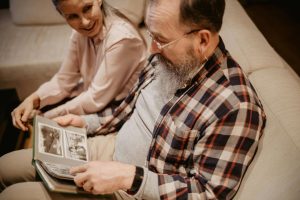Being a Single Muslim Woman in India: Identity and its Impact
Dear reader,
Are you a single Muslim woman in India? Have you ever wondered how your identity impacts your life?
Do you find it challenging to interact with men of different beliefs? And do you feel the pressure to get married from matchmaking aunties and relatives?
If your answer is yes, then you’re not alone. Identity and its impact on one’s life, particularly for a single Muslim woman in India, can be complex and nuanced.
1. Navigating Identity
As human beings, we are all unique individuals with our own set of characteristics that make us who we are. But the question is, how much of our identity is shaped by nature and how much by nurture?
Being a single Muslim woman in India, I often wonder how much of my identity is innate and how much has been shaped by societal expectations and cultural norms.
On the one hand, I am proud of my Muslim identity, and it has given me strength and resilience throughout my life. But on the other hand, it can also bring me unwanted attention and scrutiny.
For example, I have been stereotyped as being oppressed or that I have to cover myself up all the time.
2. Interactions with Men of Different Beliefs
As a single Muslim woman, I have had my fair share of challenges when it comes to interacting with men, especially those of different beliefs. Often, there is a communication gap that exists because of our different cultural backgrounds and beliefs.
Conversations can sometimes feel awkward and stilted, and misunderstandings can arise. And when it comes to dating, the challenges become even more significant.
Muslim women are often seen as undesirable because of preconceived notions surrounding our lifestyles. I find myself questioning whether men will accept me for who I am, without any preconceived notions.
3. Pressure from Matchmaking Aunties and Relatives
The pressure to get married in India is immense, and as a Muslim woman, this can be even more pronounced. Matchmaking aunties and relatives can often make it seem like marriage is the ultimate goal in life.
But as a single Muslim woman, I refuse to let this pressure affect me. Marriage is a choice, not a compulsory milestone in life, and I believe that everyone has the right to make their choices.
4. Discoveries from the Experiment
I decided to conduct an experiment to explore the perceptions of singledom in India. What I found was both surprising and enlightening.
- There is an undeniable privilege that exists for those who are married, and a social stigma that comes with being single.
- Women, in particular, face greater scrutiny as society expects them to get married and start a family.
- But contradictory expectations exist. On the one hand, society expects women to be independent and strong, but on the other hand, there is still a strong expectation for them to conform to prescribed gender roles.
- What I also discovered was that regardless of identity, many women experience similar challenges and feelings of isolation.
5. Conclusion
As a single Muslim woman in India, I am more aware than ever of the impact of identity on my life. I know that I can’t change who I am, but I can change the way I react to societal pressures and expectations.
I also know that I am not alone. No matter what our identity is, we all face different challenges in life.
But by sharing our experiences, we can find commonalities and, in turn, support each other. So, to all my fellow single Muslim women, remember that you are not alone.
Keep being true to yourself, and don’t let societal pressures or family expectations define who you are. Our identity is our power, and we should embrace it with pride.
Choosing Your Own Lens: Religion and Self-Defined Identity
Dear Reader,
Do you feel like your religious identity influences your personal worldview? Do you find yourself resisting societal pressures to conform to certain beliefs or perspectives?
And have you ever experienced the transformative power of changing your worldview? If these questions resonate with you, then you may be interested in exploring the idea of choosing your own lens.
1. Religion and Choice
Religion is often considered a fundamental part of one’s identity, carrying with it a set of prescribed beliefs and practices. However, as individuals, we all have the power to choose which aspects of our religious identity we embrace and which we reject.
This personal choice can shape our individual worldview, allowing us to define who we are and what we believe in. For instance, as a Muslim woman, my religion has shaped my life in many significant ways.
It has given me a sense of belonging and community, and it has influenced my moral and ethical values. However, I choose to embrace certain aspects of my religious identity while rejecting others.
For me, religion is a personal choice, and I decide which beliefs and practices align with my inner values.
2. Resistance to Societal Scrutiny
Choosing our own lens can be challenging, especially when societal pressure defines what is “normal” and what is not. It takes courage to resist the pressure of external influences on our values and beliefs.
It is not easy to stand up to the scrutiny of society, family, and friends. However, through personal reflection, we can define our self-defined identity without shame or fear.
For instance, as a single Muslim woman in India, it is almost expected that I should be married by now. As much as I want to please my family, I have decided that my relationship status should not define me.
I have learned to resist societal pressure and embrace my self-defined identity. I realized that my value as a woman does not depend on my marital status but on my strengths, my accomplishments, and my character.
3. The Power of Changing One’s Worldview
Choosing our own lens and resisting societal pressure can lead to personal growth and evolution. It can challenge us to re-evaluate our beliefs and perspectives, allowing us to change our worldview.
In today’s evolving society, it is essential to recognize that societal norms are continually changing. The way we view our religion and traditions should also be open to change.
For instance, growing up, I was taught that women should cover their head as part of our religious practice. But as I started to question the reasons behind this practice, I realized that this belief was a product of my surroundings and not of my religious scripture.
I began to change my view and definition of how my religious practices can be aligned with my self-defined identity.
4. Conclusion
Choosing our own lens can allow us to define our unique identity and shape our personal worldview. It requires the courage to resist societal pressure and the willingness to change our beliefs.
As individuals, we should recognize the potential of personal growth and self-defined identity.
By acknowledging that our beliefs and perspectives can change, we can embrace the diversity of ideas that exist and grow as individuals. In conclusion, the topics of personal choice, resistance to societal pressure, and changing one’s worldview are all interconnected and have significant implications for our lives.
Whether it be our religious identity, our relationship status, or our beliefs, choosing our own lens allows us to define our unique identity and shape our personal worldview. This requires the courage to resist societal pressure and the willingness to change our beliefs.
By acknowledging the potential for personal growth and self-defined identity, we can embrace the diversity of ideas that exist and grow as individuals. It is only through this process that we can find our own path and live fulfilling lives on our terms.



